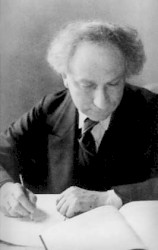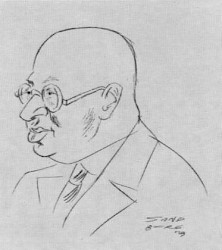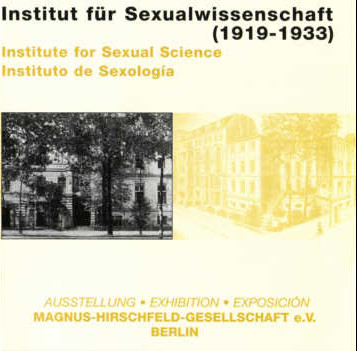Lawyers

Siegfried Chodziesner
Lawyer
As early as 1904, Chodziesner assisted Magnus Hirschfeld in legal matters. After an opinion poll among students as to their sexual orientation, he defended Hirschfeld who had been accused of insulting the students with the questionnaire.
In 1918, he was one of the three founders of the Hirschfeld-Foundation and a member of the “Scientific-humanitarian Committee” (Wissenschaftlich-humanitäres Komitee). He remained a member of the Foundation’s board as the Institute’s legal adviser until the end of 1923. At the same time, he had his own law practice in Berlin.


Felix Halle, J.D.
1884-1938 – Lawyer, communist, sexual penal code reformer
In 1918, Halle became a professor of law at the University of Berlin..] In 1922, he joined the Communist Party (KPD), and in 1928 he served as the KPD’s representative in the state judicial court (Staatsgerichtshof).
He fought together with colleagues at the Institute for reform of the penal code (with respect to homosexuality and abortion) and changes in marriage and family law. Halle participated in congresses of the World League for Sexual Reform. He was arrested in 1933 and then emigrated to France. In 1937, he went to Moscow; in 1938 he was condemned to death and shot.

Walther Niemann, J.D.
Lawyer, notary
In 1919, Niemann joined the Institute as a legal adviser, offering assistance in drawing up contracts and counselling in penal matters, marital issues and blackmailing on account of homosexuality.
In 1920, he helped to launch a broadly-based pressure group campaigning for the homosexual penal clause §175 to be repealed.
It was also owing to his personal commitment that the Ministry of Justice, for the first time, consented to transvestites having their names changed.
Niemann had lawyer’s offices in Berlin.


Johannes Werthauer, J.D.
1866-1936/37 – Lawyer, sexual penal code reformer
After studying law and political economics, Werthauer worked as a lawyer and notary, and served as honorary consul for Yugoslavia.
Werthauer and his Institute colleagues fought for reform of the sexual penal code (legalization of abortion) and the marriage law. He wrote for Institute publications and worked as a defense lawyer. Werthauer spoke out for the principle of “education instead of prison.” In 1933, he emigrated to Paris.
